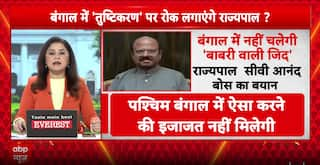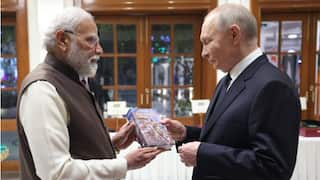SC Can Grant Divorce On 'Irretrievable Breakdown' Of Marriage, Dispense 6-Month Waiting Period
Supreme Court stated that the mandatory waiting period of 6 months for divorce through mutual consent can be dispensed with subject to conditions.

Supreme Court’s five-judge Constitution bench on Monday held that it can dissolve a marriage on the ground of irretrievable breakdown of a marriage. Supreme Court stated that it can invoke special power granted to it under Article 142 of the Constitution and that the mandatory waiting period of 6 months for divorce through mutual consent can be dispensed with subject to conditions, news agency PTI reported.
Article 142 of the Constitution deals with the enforcement of the Supreme Court's decrees and orders to do "complete justice" in any matter before it.
A five-judge Constitution bench led by Justice S K Kaul delivered the verdict on a batch of petitions relating to the exercise of its vast powers under Article 142 of the Constitution to dissolve broken-down marriages between consenting couples without referring them to family courts for protracted judicial proceedings to get the decree of separation.
"We have…. held that it is possible for this court to dissolve the marriage on the ground of irretrievable breakdown of marriage," the bench, also comprising justices Sanjiv Khanna, A S Oka, Vikram Nath, and J K Maheshwari, said, as quoted by PTI.
While pronouncing the verdict, the bench stated that it has never been in doubt or debate that the top court is empowered under Article 142 (1) of the Constitution to do complete justice. "We have held that the period of six months can be dispensed with subject to the requirements and conditions as specified in the two judgements of this court...," Justice Khanna, while pronouncing the verdict on behalf of the bench, said, as per PTI.
ALSO READ | Missionaries Propogating Christianity Not Illegal, No Forceful Conversion: Tamil Nadu Tells SC
Social Changes Take 'A Little Time': SC While Reserving Order In The Matter
While reserving its order, the court stated that social changes take "a little time," and that it is sometimes easier to pass legislation but more difficult to persuade society to change with it.
The Supreme Court acknowledged the significant role that families play in Indian marriages. Two questions were previously referred to the Constitution bench, including whether the exercise of such jurisdiction by the SC under Article 142 should be made at all or whether such exercise should be left to be determined on the facts of each case.
On September 20, the Supreme Court stated, "We do believe that another question which would require consideration would be whether the power under Article 142 of the Constitution of India is inhibited in any manner in a scenario where there is an irretrievable breakdown of marriage in the opinion of the court but one of the parties is not consenting to the terms." After using its broad powers under Article 142 to annul "irretrievably broken marriages" for more than two decades, the Supreme Court agreed in September last year to investigate whether it can nullify marriages between estranged couples without both partners' consent.






































